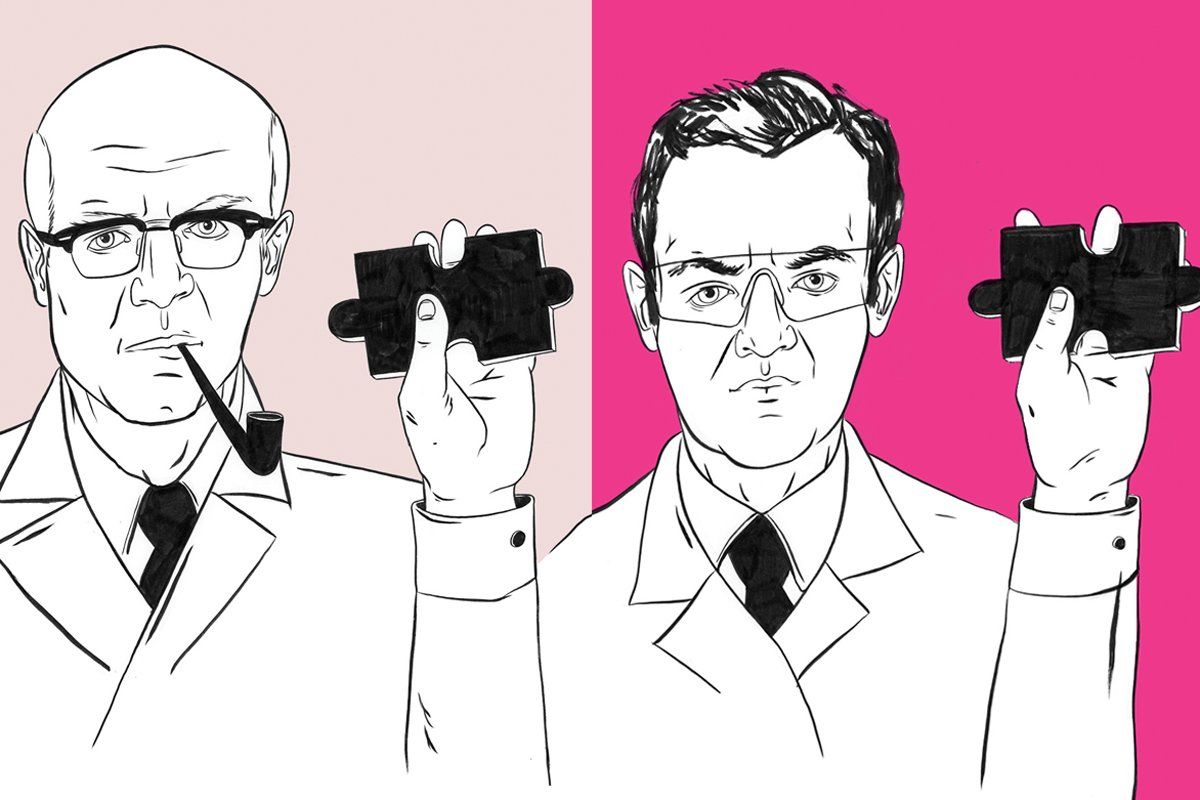
In the early years after World War II, researchers were sure they knew the cause of autism: bad parents. Popularized by Bruno Bettelheim and shown in disturbing detail in the 2003 movie Refrigerator Mothers, the theory was that autism occurred when an unlucky child was stuck with a cold, unfeeling mom. The characteristic withdrawal, a hallmark of autism, was the predictable psychological response to such a chilly world.
As this view lost traction in the 1970s, a new notion came to the fore: there's something in the environment. Thiomersal, a mercury-based preservative used in routine infant vaccinations, was the most frequently invoked perpetrator. This too had contextual logic: the theory arose at a time when various chemicals—in air, food, and medication—were viewed as potentially toxic. It followed that autism too must be the result of a poison.
This explanation also has been disproved, as a spate of recently published observations has brought us back to where we began—with Mom and Dad. Unlike the shrill finger-pointing depicted in Refrigerator Mothers, however, this version of blaming the parents is thoroughly modern: rather than behavior, genes and health are the problem.
In the journal Nature, articles from three different groups showed that sperm from an older father (a man over 35 years) may increase autism risk. Perhaps, argue the authors, minor exposures accumulate as a man ages, ultimately leading to genetically damaged sperm. Meanwhile in the journal Pediatrics, researchers demonstrated that the risk of autism increases when a pregnant mother is obese, diabetic, or has high blood pressure.
These reports are not the first to explore the possible contributions of these factors—the ideas have been around for years. But the studies arrive at a time when we are inclined to accept a genetic explanation of everything, and to see lack of physical fitness as having far-reaching repercussions. The theories are appealing now because, well, it's now.
Like everything else, medical explanations are susceptible to fashion. Indeed the history of autism research recapitulates the intellectual history of the same 70 years—from the psychoanalytic explanation to blaming the toxic world around us to looking within our own DNA for answers. Similarly, the characters in the current narrative, the beleaguered dad with his inferior sperm and the overweight mom trying her best, are familiar modern archetypes.
Time will tell whether the latest work signals an important new line of investigation into autism-spectrum disorders, which now affect one in 88 children. We need to be extremely cautious, however; medical "breakthroughs" are often reported but in fact seldom occur. Surely the new research moves the field incrementally forward, but as with many similar insights into the genetic basis of disease, the gap between spotting a faulty gene and improving a kid's health remains vast.
Uncommon Knowledge
Newsweek is committed to challenging conventional wisdom and finding connections in the search for common ground.
Newsweek is committed to challenging conventional wisdom and finding connections in the search for common ground.





